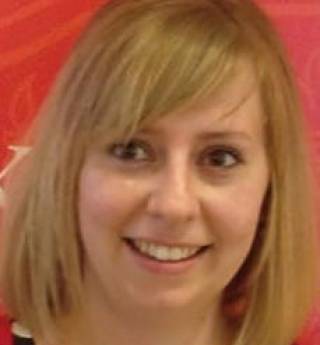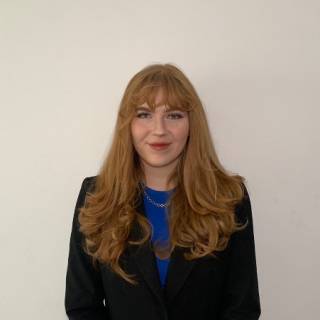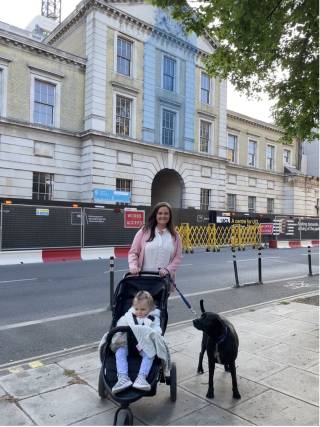Disability equity
The Faculty of Brain Sciences Disability Equity Group
The Faculty of Brain Sciences Disability Equity Group has a number of aims:
To raise awareness of disability issues in the Faculty of Brain Sciences, including environmental, behavioural and institutional barriers experienced by Disabled and Neurodivergent people with a range of physical, cognitive and mental health conditions and impairments.
To represent the views of Disabled and Neurodivergent staff and students, and those closely associated with them, and act as a body of expertise on disability and neurodivergence issues in the Faculty.
To advise senior management in the Faculty of Brain Sciences and Faculty EDI/Inclusion Leads on how to promote a culture which includes Disabled and Neurodivergent people and celebrates diversity and acceptance.
To deepen the knowledge of the many facets of disability and neurodivergence equity and inclusion issues experienced by Faculty staff and students.
To take proactive measures to challenge and redress historic patterns of inequality faced by Disabled and Neurodivergent people with multiple protected characteristics e.g. LGBTQ+ Disabled people, older Disabled People, BAME Disabled people, etc.
To provide opportunities for social and professional networking among group members.
To identify positive environmental, behavioural and institutional good practice to be shared, preserved, celebrated and amplified.
Membership
The group meets at least once a term and is open to staff and students in the Faculty who identify as Disabled or Neurodivergent or have a significant interest/experience in inclusion issues. To apply to join the group, please contact Elise Crayton, e.crayton@ucl.ac.uk.
Meet the team
Dr Elise Crayton: Chair

Elise is also a champion for equity, diversity and inclusion by being involved in EDI committees at UCL and within the Division of Health Psychology at the British Psychological Society.
The Disability Equity Committee is a particular passion project, led by Elise, who herself is registered blind. This committee specifically focuses on support for those with disabilities, where accessibility and inclusion has become even more pertinent since the increased use of remote learning and working.
Tua Piehl

She is proud to be part of the Faculty of Brain Sciences Disability Equity Group, giving voice to all staff and students with disabilities, and creating evidence based change in the faculty and UCL.
Fiona Ducotterd

Nicola Ridgway
Dr Nicki Ridgway works in the Translational Research Office supporting academics across the Faculty of Brain Sciences in setting up new partnerships with industry. Nicki is passionate about improving equity, diversity and inclusion across UCL and continues to support the FBS Disability Equity Committee even though she is no longer based in the Faculty of Brain Sciences herself. Nicki is proud to give our staff with disabilities a voice by sitting on the Faculty of Brain Sciences Disability Equity Group and wants to work towards a more inclusive UCL where everyone can achieve their potential.
Dr Amanda Almacellas Barbanoj
Dr Amanda Almacellas Barbanoj is a Research Fellow in the Department of Clinical and Experimental Epilepsy based in the Queen Square Institute of Neurology. She works towards developing gene therapies for drug-resistant infantile epilepsies and has always worked towards inclusion of Neurodivergence.
She is proud to represent the IoN in the Faculty of Brain Sciences Disability Equity Group for improving the working environment in the Institute and ensuring that everyone’s voice is heard.
Amali De Silva
With a HR career spanning a decade across multiple industries and sectors, Amali joined the Institute of Prion Diseases as HR Manager in 2019. Amali is also the Inclusion Lead for the Institute and works closely with colleagues to champion EDI interventions.
Rikesh Rajani
Rikesh joined UCL in 2020 as a Research Fellow in the UK Dementia Research Institute and his research focusses on understanding early changes in Alzheimer’s disease. Shortly after joining UCL, Rikesh caught Covid and has since been living with the poorly understood effects of Long Covid. Rikesh is proud to sit on the Faculty of Brain Sciences Disability Equity Committee to help raise awareness of the challenges faced by disabled staff and students, and push for fairer treatment for all.
Abbey Bibi
Abbey joined the UK DRI team in June 2020 as Headquarters coordinator and is a member of the UK DRI Diversity Thinktank, which has a diverse membership from across the seven UK centres.
She has worked in Higher Education throughout her career providing both student and academic administrative support in areas including Psychology, Computing and Lifesciences.
Her previous role was at UCL in 2018 where she provided executive support to the Director of Biosciences and Divisional Manager, the acting joint Directors of HR and most recently to the Institute Director of Neurology.
Stefanie Anyadi
Stefanie Anyadi is the Teaching and Learning Team Manager in the Division of Psychology and Language Sciences, and the Inclusion Lead for taught students in the division. She is particularly interested in student mental health issues.
Grace Buckingham
Grace Buckingham is a second-year BA Linguistics student in the Division of Psychology and Language Sciences. Grace volunteers at Body & Soul mental health charity and is passionate about raising awareness of mental health issues. She joined the committee in 2023 to help other students by creating a more inclusive university environment.
 Close
Close

